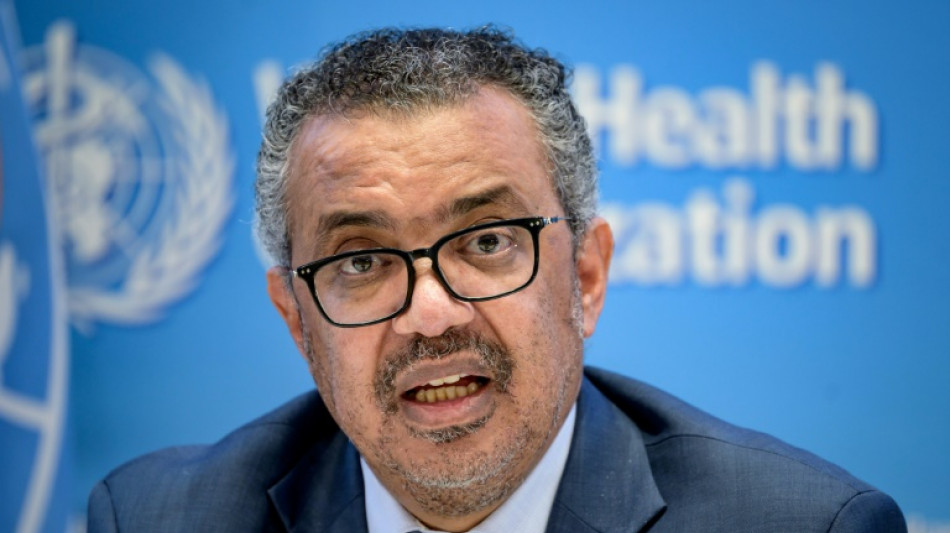
-
 French lawmakers reject wealth tax proposal in budget debate
French lawmakers reject wealth tax proposal in budget debate
-
Premier League blames European expansion for lack of Boxing Day games

-
 Bublik sets up Auger-Aliassime semi-final at Paris Masters
Bublik sets up Auger-Aliassime semi-final at Paris Masters
-
World's most expensive coffee goes on sale in Dubai at $1,000 a cup

-
 Trump stirs global tensions, confusion with nuclear test order
Trump stirs global tensions, confusion with nuclear test order
-
Panic across US as health insurance costs set to surge

-
 Court eases ban on Russian lugers but Olympic hopes on thin ice
Court eases ban on Russian lugers but Olympic hopes on thin ice
-
England captain Itoje targets Autumn Nations clean sweep

-
 Calmer Sabalenka sets sights on WTA Finals crown
Calmer Sabalenka sets sights on WTA Finals crown
-
Spurs boosted by Romero return for Chelsea clash

-
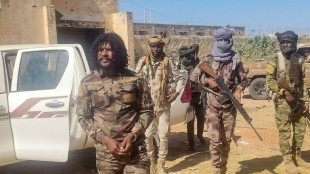 Sudan's RSF claims arrests as UN warns of 'horrendous' atrocities in Darfur
Sudan's RSF claims arrests as UN warns of 'horrendous' atrocities in Darfur
-
US says 'non-market' tactics needed to counter China's rare earth dominance

-
 China sends youngest astronaut, mice to space station
China sends youngest astronaut, mice to space station
-
From adored prince to outcast, Andrew's years-long fall from grace

-
 Rodri return fuels Guardiola belief in Man City title challenge
Rodri return fuels Guardiola belief in Man City title challenge
-
China holds send-off ceremony for space station astronauts

-
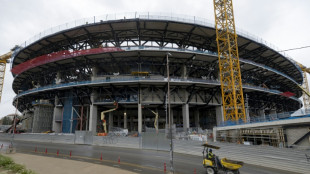 Barcelona to show off unfinished Camp Nou with public training session
Barcelona to show off unfinished Camp Nou with public training session
-
Turkish court jails 11 for life over deadly hotel inferno
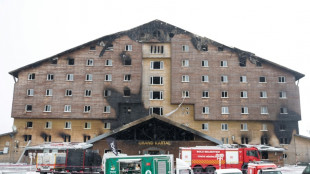
-
 Auger-Aliassime ends Vacherot run to reach Paris Masters semis
Auger-Aliassime ends Vacherot run to reach Paris Masters semis
-
Australia captain Wilson denies Wallabies use 'dangerous' breakdown tactics

-
 'Populists can be beaten': Dutch centrist Jetten claims election win
'Populists can be beaten': Dutch centrist Jetten claims election win
-
China's suspension of rare earth controls applies to EU: official
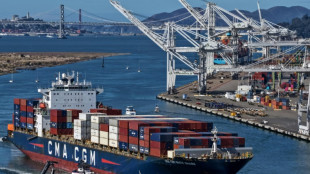
-
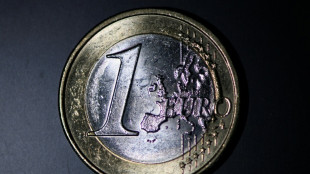 Italy complains about strong euro, urges ECB to cut rates
Italy complains about strong euro, urges ECB to cut rates
-
Louvre to get anti-ramming barriers by year end: minister

-
 Wall Street bounces on Amazon, Apple earnings
Wall Street bounces on Amazon, Apple earnings
-
AI giants turn to massive debt to finance tech race

-
 Japan PM says raised 'serious concerns' with Xi on South China Sea, Xinjiang
Japan PM says raised 'serious concerns' with Xi on South China Sea, Xinjiang
-
Shein set to open first physical store in Paris

-
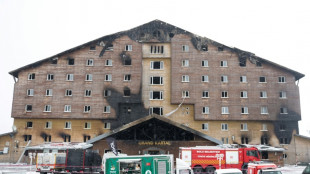 Turkish court jails 11 for life over deadly hotel fire
Turkish court jails 11 for life over deadly hotel fire
-
Hazlewood stars as Australia ease past India to win 2nd T20

-
 Stocks extend losses tracking AI, Fed and trade
Stocks extend losses tracking AI, Fed and trade
-
Arteta concerned for players' welfare in Arsenal fixture pile-up

-
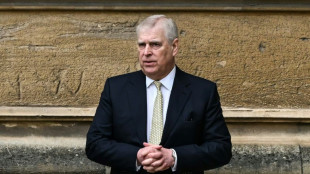 From adored prince to royal outcast, Andrew's protracted downfall
From adored prince to royal outcast, Andrew's protracted downfall
-
Maresca backs 'stupid' Delap to come good for Chelsea

-
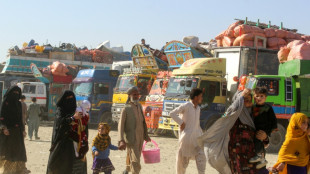 Pakistan, Afghanistan extend ceasefire, to hold another round of peace talks
Pakistan, Afghanistan extend ceasefire, to hold another round of peace talks
-
Sudan's RSF says arrests fighters accused of abuses in El-Fasher
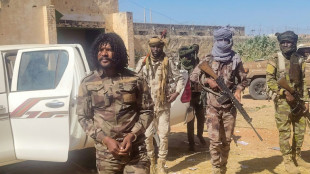
-
 Key dates in the fall of Britain's former prince Andrew
Key dates in the fall of Britain's former prince Andrew
-
Cricket falls silent across Australia after teenager killed by ball

-
 Vinicius Junior in the clear over Clasico outburst
Vinicius Junior in the clear over Clasico outburst
-
UK welcomes king's move to strip Andrew of royal titles

-
 Liverpool must snap losing 'habit', says under-fire Slot
Liverpool must snap losing 'habit', says under-fire Slot
-
Bencic out of Hong Kong last eight as tennis injury list mounts
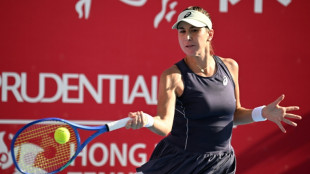
-
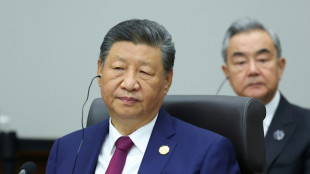 Xi invites Canada PM to China in first meet in 8 years
Xi invites Canada PM to China in first meet in 8 years
-
Chinese defence minister seeks 'trust' with US but cautions over Taiwan

-
 India's Rodrigues beat anxiety and tears to become World Cup star
India's Rodrigues beat anxiety and tears to become World Cup star
-
China, Canada leaders hold first formal talks since 2017
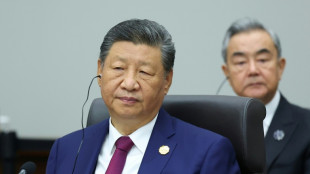
-
 Nvidia to supply 260,000 cutting-edge chips to South Korea
Nvidia to supply 260,000 cutting-edge chips to South Korea
-
Camels replace cows as Kenya battles drought
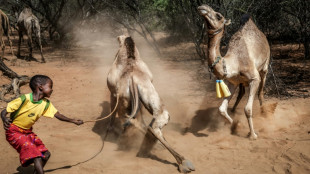
-
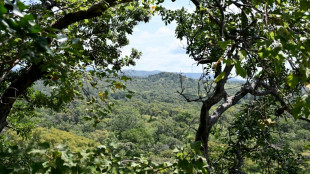 Endangered across west Africa, leopards thrive in I.Coast reserve
Endangered across west Africa, leopards thrive in I.Coast reserve
-
Risky gold rush drives young into Ivory Coast nature park

| RYCEF | -1.98% | 15.15 | $ | |
| BCC | 0.25% | 69.355 | $ | |
| CMSC | -0.88% | 23.85 | $ | |
| VOD | 0.5% | 12.03 | $ | |
| SCS | 0.09% | 15.975 | $ | |
| JRI | -0.04% | 13.865 | $ | |
| NGG | -1.1% | 75.225 | $ | |
| RIO | -0.15% | 72.095 | $ | |
| CMSD | -0.74% | 24.18 | $ | |
| RBGPF | 0% | 76 | $ | |
| RELX | -0.52% | 44.14 | $ | |
| BCE | -0.61% | 22.97 | $ | |
| AZN | -0.1% | 82.255 | $ | |
| BTI | 0.36% | 51.465 | $ | |
| GSK | -0.25% | 46.822 | $ | |
| BP | 0.64% | 34.995 | $ |

World treats crises affecting black, white lives unequally: WHO chief
The WHO chief said Wednesday that the world was treating humanitarian crises affecting black and white lives unequally, with only a "fraction" of the attention on Ukraine given elsewhere.
World Health Organization's director-general Tedros Adhanom Ghebreyesus said the emergencies happening in other parts of the world were not being taken as seriously and hoped the international community "comes back to its senses".
"I don't know if the world really gives equal attention to black and white lives," Tedros told a news conference.
"The whole attention to Ukraine is very important of course, because it impacts the whole world.
"But even a fraction of it is not being given to Tigray, Yemen, Afghanistan and Syria and the rest. A fraction.
"I need to be blunt and honest that the world is not treating the human race the same way. Some are more equal than others. And when I say this, it pains me. Because I see it. Very difficult to accept but it's happening."
- Tigray siege -
Tedros, who is himself from Tigray, said the United Nations had determined that 100 trucks per day of life-saving humanitarian supplies needed to be going into the besieged northern region of Ethiopia.
The country's former health and foreign minister said that since a truce was declared, at least 2,000 trucks should have gone in, but only 20 have done so thus far.
Tedros said he was worried that the 20 trucks going in could be just a "diplomatic manoeuvre" on the part of the government in Addis Ababa.
"In effect, the siege by the Ethiopian and Eritrean forces continues," he said.
"To avert the humanitarian calamity and hundreds of thousands more people from dying, we need unfettered humanitarian access from those reinforcing the siege."
But Tedros said global attention was simply not being placed on such humanitarian crises.
"I hope the world comes back to its senses and treats all human life equally," he said.
"What is happening in Ethiopia is a tragic situation. People are being burned alive... because of their ethnicity.... Without any crime.
"So we need to balance. We need to take every life seriously because every life is precious."
- World crises -
The UN says hundreds of thousands of people are at risk of starvation in Tigray, where people have for months also faced fuel shortages and a lack of basic services such as electricity, telecommunications, internet and banking.
Across northern Ethiopia, the 17-month conflict has driven more than two million people from their homes, according to the UN, and left more than nine million people in need of food aid.
Thursday marks 50 days since Russia invaded Ukraine. More than a quarter of the Ukrainian population has been forced from their homes.
Moscow -- already accused by the West of widespread atrocities against civilians -- appears to be readying a massive offensive across Ukraine's eastern Donbas region.
The UN calls Yemen the world's worst humanitarian crisis.
The UN is also seeking its biggest-ever single-country appeal for funds for Afghanistan, which is on the brink of economic collapse, with more than 24 million people needing humanitarian assistance to survive.
Civil war erupted in Syria in 2011 after the violent repression of protests demanding regime change.
Around half a million people have been killed and millions have been displaced in the conflict, which has battered the country's economy.
O.Bulka--BTB



